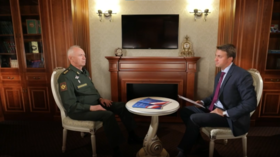Italy has long been the laboratory for all
sorts of reactionary experiments, from Benito Mussolini’s Fascist regime
to Silvio Berlusconi’s celebrity right-wing populism, a precursor to
Donald Trump. In recent decades the belpaese has also become the
testing ground for the most extreme form of neoliberalism: technocratic
governments led by austerity-minded economists. It has been less than a
decade since the government led by Goldman Sachs advisor Mario Monti
enforced painful austerity measures against the popular will. Now, the
Italian political establishment is at it again — in redoubled form.
To solve the political stalemate in incumbent premier Giuseppe Conte’s coalition, president Sergio Mattarella has tasked none other than former European Central Bank head Mario Draghi to
form a new administration. Draghi is one of the architects of European
austerity — and the person responsible for the memoranda that have
devastated the Greek economy.
Draghi’s appointment — made with no reference to any kind of election
or even the main parties — repeats the same old cure of “fiscal
responsibility” designed to improve Italy’s “international reputation.”
But it’s also something else. In the aftermath of the pandemic, it is
also an attempt by business circles to lay their hands on the European
Recovery Fund investment — directing it toward the business sector,
rather than helping ordinary people.
Centrists for Hire
Draghi’s proposed new government – which will now need to
find a majority in parliament — comes after the crisis of the so-called
Conte II government. From June 2018 head of a coalition including the
populist Five Star Movement (M5S) and the right-wing Lega, from
September 2019 Conte instead led a coalition comprising M5S, the
center-left Partito Democratico (PD), the small left-wing Liberi e
Uguali, and the centrist-neoliberal Italia Viva.
Last month, with the pandemic still raging, the small Italia Viva —
the political house organ of Italian financial elites, led by 2014–16
prime minister Matteo Renzi — finally brought the government to its knees. Evidently, even the moderate social measures promoted by Conte were seen as unacceptable by Italian business circles.
Created as a split from the PD, which Renzi himself led between 2013
and 2018, Italia Viva is extremely unpopular: only 3 percent of Italians
support it, according to polls. Yet, it controls a handful of senators
that were decisive for Conte’s majority. Renzi counts many dirty
political fixers among his close friends. In a scene worthy of a spy
novel, just before sparking this crisis he visited one such figure who
is in jail for corruption — former senator Denis Verdini, whose daughter
is the fiancée of right-wing populist Lega’s leader Matteo Salvini.
Renzi has also earned scorn for his dubious international
allies. A great friend of Tony Blair, in the middle of the current
crisis he flew to Saudi Arabia for a paid conference to praise the
“great, great” crown prince Mohammed bin Salman, despite his implication
in the killing of journalist Jamal Khashoggi, the massacre in Yemen,
and Saudi support for the dictatorship in Egypt, at whose hands the
young Italian labor researcher Giulio Regeni was killed in 2016, while Renzi was prime minister.
While he initially supported the creation of the Conte II government
in 2019, Renzi’s splinter group acted more as an internal opposition to
the government than an ally. He strongly criticized the moderate social
measures Conte had implemented, starting with the “citizens’ income,” a
government transfer that helps around one million Italian families in
conditions of extreme poverty.
Furthermore, he often insisted that Italy had to apply for the
European Stability Mechanism (ESM), providing loans for financially
struggling countries. M5S strongly opposed this because of fear of the
conditionalities attached to it, while also noting that no other
European country intends to use these loans. After launching repeated
ultimatums from his Twitter account, Renzi eventually decided to pull
down Conte’s government, as he asked the two Italia Viva ministers to
resign.
Some thought Renzi just wanted more ministries and power within the
existing coalition. But it soon became apparent that his extortionate
demands were merely a ruse to put an end to Conte’s government.
Ultimately, he had three real aims. First, unseating Conte who had
become far too popular for his liking, and still has the support of
around half of Italians. Second, disorganizing the new center-left
project that PD and M5S were working on, uniting a broad social bloc
comprising precarious workers (M5S) and public employees and pensioners
(PD).
But third, the arch-neoliberal Renzi sought to create political chaos
in which the instinctive response of the Italian establishment,
starting with President Sergio Mattarella, would be to resort to the
usual cure for moments of crisis: a technocratic government implementing
the “reforms” demanded by EU and business potentates. With Draghi’s
nomination, all of these objectives have now been achieved.
Technocrats in Charge
So-called “technical” governments are an obvious affront
to democracy. Indeed, this is but the most extreme manifestation of the
post-democratic tendency in capitalist democracies, discussed by
political scientists such as Colin Crouch.
It’s one thing to have a government that depends on the work of
supposedly nonpolitical experts to staff its ministries and agencies,
and something else to have a government actually led by a nonelected
technocrat. Italy is one of the very few countries in the West where
such a thing is not only considered acceptable but has even become
something of a tradition.
Political scientists Duncan McDonnell and Marco Valbruzzi have
counted a total of twenty-four technocrat-led governments in Europe
between World War II and 2013. Greece and Romania top the list at five
each; a Draghi government is expected to become Italy’s fourth. What’s
more, all the technocrat-led governments in Italy have happened in a
short period of time, since the fall of the so-called First Republic in
the early 1990s — and they have invariably presided over harsh,
budget-cutting economic policies.
The first technocrat-led government was formed by Carlo Azeglio
Ciampi in 1993. As governor of Italy’s central bank during the 1980s,
Ciampi had contributed to demolishing Keynesian consensus, advocating
the independence of the central bank and balanced budgets. Once prime
minister, he promoted the first mass round of privatization of state
assets, putting an end to state participation in major banks, the
electricity company Enel, and petrol company Agip, and practiced an
“incomes policy” putting downward pressure on wages. All this was
designed to prove Italy’s credentials to enter the process leading to
the creation of the euro.
Just a few years later, it was the turn of Lamberto Dini, prime
minister between 1995 and 1996. Like Ciampi and Draghi, he also hailed
from the Italian central bank of which he was the director general. Dini
became prime minister after the fall of the first executive led by
Silvio Berlusconi and proceeded on the path of privatization and “fiscal
responsibility” inaugurated by Ciampi, for example, by forcing through a
major pension reform.
The fall of Berlusconi’s last cabinet in fall 2011 saw another
technocrat, Mario Monti, becoming premier. The Milan media magnate was
hurried out of government amid financial speculation against Italian
bonds, and the scandal of his sex encounters with an underage
prostitute. Disturbingly, his exit from power came after a fierce letter
authored by Draghi — already ECB head at the time — and a joint press
conference by German chancellor Angela Merkel, and French president
Nicolas Sarkozy who clearly expressed their wish that Berlusconi be
removed.
For all of Berlusconi’s corruption and antics, Italians
soon learned that things could get even worse. In Berlusconi’s stead,
the then president Giorgio Napolitano installed Monti, an economics
professor hailing from Milan’s elite Bocconi University — the Italian
equivalent of the Chicago School in its fanatical embrace of neoliberal
policies. Monti had recently served as a European commissioner from 1995
to 2004, responsible first for Internal Market, Services, Customs, and
Taxation, and then for Competition. He was called in — as invariably
happens with the rhetoric ushering in technocratic governments — to
“rescue Italy.”
Monti behaved in government very much as if he was still an EU
commissioner, or a colonial governor sent to sort out an unruly region
of the empire. He administered the structural adjustment “cure”
recommended by Brussels in full, thus severely damaging an economy that
had long been in stagnation due to restrictive EU budget rules. He
introduced a package insultingly named “Salva Italia” (Save Italy),
which cut public spending to the bone. This meant cuts to public
pensions, but it particularly affected the health sector, with
consequences that have become all too apparent amid the COVID-19 crisis.
Monti’s prime objective, as he declared to CNN, was “suppressing
domestic demand” by lowering wages in order to improve “international
competitiveness.” Unsurprisingly, Italians were not too happy. By the
end of the legislature in 2013 his government had the approval of only
25 percent of Italians and his centrist party Scelta Civica only
received 8 percent of the vote in the elections that year.
A Former Goldman Sachs Employee for PM
Given the precedents, a Draghi government is a worrying
prospect. Draghi may perhaps seem a less staunch neoliberal compared to
Monti. His tenure at the ECB between 2011 and 2019 was applauded by the
liberal press for having saved the eurozone, with his famous promise to
do “whatever it takes,” putting a halt to financial speculation on
sovereign bonds and earning him the nickname “Supermario.”
But it should not be overlooked that Draghi was one of the architects
of austerity in the aftermath of the 2008 crisis. He was one of the
main people behind the implementation of contractionary policies that
strangled many European economies, especially those in the South.
Furthermore, the quantitative easing programs that took place under his
watch, far from pumping resources into the real economy, only inflated
assets. Ultimately the greatest winner was the German economy, profiting
from currency devaluation.
Some recent declarations may lead some to think that Draghi has learned the lessons of the failure of austerity. In a famous Financial Times
op-ed in March 2020, the former ECB head declared that it should be
accepted that higher public debts will be with us for the foreseeable
future. In August, speaking at the annual meeting of right-wing Catholic
group Comunione e Liberazione, he argued that states should create
“good debt,” namely investment in productive infrastructure.
This change in rhetoric parallels the positions of other financial
leaders such as Kristalina Georgieva, the current International Monetary
Fund chief who has asked governments to “spend as much as you can.” But
it would be wrong to take this as a commitment to anything but measures
to save a failing capitalism from disaster.
As a former Goldman Sachs employee, Draghi will have the
responsibility of managing the two hundred billion euros made available
by the European Union through the recovery fund. It is likely that a
considerable amount of these funds will now be diverted toward big
business represented by Confindustria, the Italian employers’
federation. Unsurprisingly, Confindustria is Draghi’s biggest
cheerleader.
Draghi will probably not have the time nor political strength to
repeal some social policies such as the citizens’ income policy (though
he may restrict its criteria) and enforce new cuts on public spending.
But he will undoubtedly attempt to put the Italian economy back on the
path of “fiscal responsibility” that some European institutions,
including the European Central Bank, think it has strayed from during
the coronavirus crisis.
In particular a Draghi government will surely mean the nonrenewal of
the temporary layoffs ban, introduced in March 2020 and due to end in
two months. This was one of the most socially progressive measures
implemented by Conte’s government during the pandemic, forcing private
companies to shoulder part of the economic costs of the crisis. But
Confindustria has repeatedly asked to get back the fundamental privilege
of the entrepreneur: the right to fire workers. Draghi is likely to
fulfill its wish — sending hundreds of thousands of Italians into
unemployment and poverty.
The key question now is how Italian political forces and ordinary
citizens will react to this outrageous departure from democratic
principles and the renewed attempt to subordinate Italian politics to
the fiscal responsibility demanded by Brussels. It is unlikely that
Democrats will resist the calls for “responsibility” made by Mattarella,
who himself hails from this party. A parliamentary majority could be
found with the votes of PD, Lega, Berlusconi’s Forza Italia, plus the
usual turncoats that famously abound in the Italian parliament.
M5S is the only formation that may say no — though even
this is hardly assured. Doing so could help it regain some of its street
credentials, lost after three years in government as part of two
different coalitions. Italians are angry at Renzi and the political
chaos he has ushered in, and a number of groups have already taken to
the street during the pandemic to voice their concerns. If Draghi is not
careful, he may have to deal not only with a health and economic
emergency, but also with a public order one.
In this dismal situation, the only hope is that the citizenry that
has mostly remained quiescent during this crisis eventually wakes up. If
this does not happen, a technocratic government could soon lead to a
reactionary government led by Salvini’s Lega and Giorgia Meloni’s
post-fascist Brothers of Italy, when the next elections come.
All this, thanks to corrupt centrist politicians — and the Italian
establishment’s proclivity, in times of crisis, to call in technocrats,
rather than call elections and let the people decide what kind of
economic policy they prefer.






































































